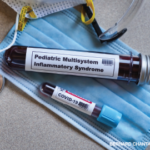A Step-Wise Approach
The task force reiterated that the majority of children with COVID-19 have mild symptoms and excellent outcomes. In fact, the group achieved consensus on outpatient evaluation for children with stable vital signs, provided physicians ensure close follow-up. However, MIS-C patients who develop additional symptoms, such as tachycardia, respiratory distress, evidence of mild renal or hepatic injury or other abnormal laboratory findings, should be considered for hospital admission. The guidance document includes a tiered diagnostic workup to aid in staging these patients, says Dr. Mehta.
Patients admitted to the hospital should be evaluated by specialists with expertise in MIS-C and managed by a multidisciplinary team, Dr. Henderson emphasized. The guidance document supplies specific advice regarding cardiac management. Moderate to high consensus was achieved on most of the directives regarding cardiac imaging intervals and what each should include. For example, a high measure of consensus was achieved for echocardiograms to be conducted at diagnosis and during clinical follow-up to evaluate ventricular/valvular function, pericardial effusion and coronary artery dimensions with measurements indexed to body surface area using z-scores.
The document also includes guidance regarding immunomodulatory and anticoagulation treatment in MIS-C and when and how biologics may be introduced. MIS-C treatment may include low- to moderate-dose glucocorticoids, or high-dose, pulse glucocorticoids via IV in patients with life-threatening complications, such as shock. Specifics on timing, dosage and testing are included.
Key Messages Emphasized
Dr. Henderson was on service at Boston Children’s Hospital during the first wave of East Coast pandemic cases. “We saw quite a lot of MIS-C patients, and I cared for them on the week that we were the busiest,” she recalls. She and her colleagues from Boston Children’s have developed a manuscript summarizing their experience with more than 30 MIS-C patients. “Fortunately,” she says, “the patients all did very well and got better fairly quickly.” This is a message that’s also embedded in the guidance document: The vast majority of children with COVID-19 present with mild symptoms, and MIS-C remains a rare complication.
However, she adds, the field is evolving and our knowledge about MIS-C will change over time.
Understandably, patients’ families and frontline emergency and pediatric physicians voice worry and concern when the syndrome develops in their patients. Although there is still a lot we don’t know, Dr. Mehta says, “I’ve been telling my patients that our data are showing that patients with rheumatic disease or immunosuppression are generally doing very well. On a population level, we are not seeing bad outcomes.” The current clinical guidance documents may offer an additional benefit for pediatric rheumatologists who practice in outlying areas, he says. “Even if they are not in a hot spot, they can find their closest colleague and ask for an opinion.”



